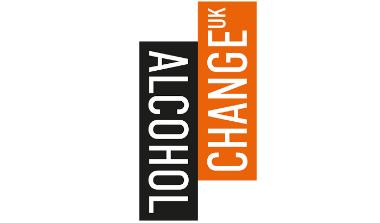Emotional Regulation & Drinking Urges
Mental Health / Alcohol GuidanceAlcohol, for many of us, becomes more than a drink. It becomes a coping mechanism, a way to drown sadness, numb anxiety, or escape trauma. The problem is, while it may temporarily silence discomfort, it also prevents emotional growth. Emotional regulation is the ability to manage, process, and healthily express emotions. The ability to regulate emotion is a skill, and like all skills, it requires practice.
The emotional loop
What is the emotional loop that keeps addictive behaviours alive? An individual feels a strong emotion — loneliness, shame, fear, anger — and lacks the tools or experiences to process it. Alcohol is then used to self-soothe, suppress, or escape. That temporary relief reinforces the behaviour. But over time, the brain becomes conditioned to associate alcohol with emotional relief, while simultaneously becoming less capable of processing emotions without it.
This is where the cycle tightens its grip: when emotional pain increases due to the consequences of drinking, such as relationship issues, regret, mental fog, and health problems, this results in the need to escape that emotional fallout, often leading to more drinking. It’s a loop built on avoidance, not resolution.
Emotional regulation: The missing piece
When examining our relationship with alcohol, I’ve found one of the most critical skills to consider is emotional regulation. It’s not about controlling emotions or suppressing them. It’s about recognising, understanding, and managing them without needing alcohol to do the heavy lifting.
Here’s the truth: emotional discomfort is a part of life for everyone. But those of us who’ve leaned on alcohol often haven’t learnt how to tolerate discomfort without running from it. At the beginning of our alcohol-free journeys, it can feel like standing in the middle of a storm without shelter. Everything you once avoided now floods in: the grief, the guilt, the anger, the anxiety. But here’s the hope: emotional regulation can be learnt.
Practical tools for emotional regulation
1) Name the emotion
It sounds simple, but naming what you feel gives you choice over it. Are you sad? Frustrated? Ashamed? Identifying the emotion is the first step in managing it. Without this awareness, we react impulsively, leaning towards unhealthy coping strategies to dull the discomfort.
2) Breathe before you respond
I know, I know, easier said than done, but the breath is a powerful regulator of the nervous system. In moments of emotional intensity, taking a moment to pause and breathe can de-escalate the urge to numb or lash out. It gives your body and mind a moment to realign. Box breathing is a relaxing and grounding technique to calm yourself. You can do this by breathing in through your nose for a count of 4, holding your breath for a count of 4, slowly breathing out for a count of 4, and then pausing for a count of 4 again, before repeating the cycle 3-4 times.
3) Use the HALT method
Check in with yourself: Am I Hungry, Angry, Lonely, or Tired? These states can intensify emotional reactions and trigger cravings. Identifying the root can guide you toward healthier coping. These experiences are often confused with cravings.
4) Learn to sit with discomfort
Emotions are like waves - they rise, peak, and pass. Learning to observe them, rather than fight them, builds resilience. Practices like mindfulness and journaling can help you sit with what you feel without being consumed by it.
5) Build a vocabulary for emotional needs
Living life without alcohol gives you the chance to meet your emotional needs consciously, rather than unconsciously trying to meet them through drinking. Practice translating your emotions and communicating them. For example, under the surface of anger there is often a need for understanding, connection, or safety.
Why emotional regulation matters in the long-term
When we stop drinking, it isn’t just about abstaining from drinking alcohol — it’s about growing as a person. Without emotional regulation, we can find ourselves white-knuckling through life, still chained to the emotional patterns that fed our urges to drink. But with emotional regulation, living alcohol-free becomes expansive. You gain the capacity to handle relationships better, navigate stress with more clarity, and respond to life’s challenges with integrity rather than reactivity.
It’s also worth noting: emotional regulation isn’t about perfection. We can still feel overwhelmed at times. We can still make mistakes. But the goal is progress, not perfection. Every moment we choose presence over avoidance, breath over impulse, understanding over suppression, we grow stronger.
Alcohol may have been a short-term solution, but it came at a long-term cost. Sobriety allowed me to rebuild, not just my life, but my inner world. Emotional regulation is the foundation of that rebuild. It’s not easy, but it’s worth it. Because when you learn to face your emotions sober, you don’t just survive life — you experience it fully. And that’s what true freedom feels like!
















































































